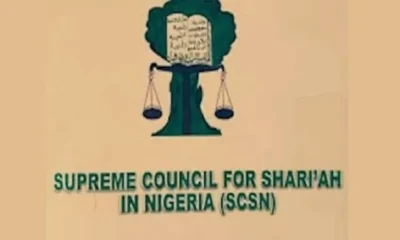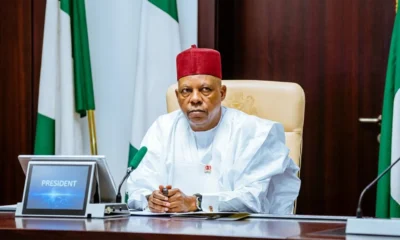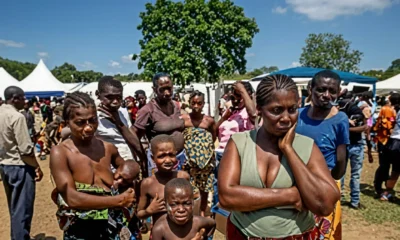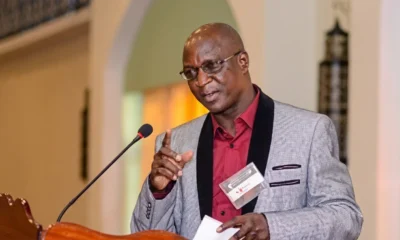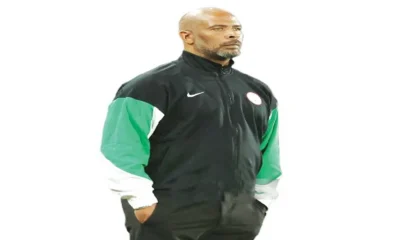News
Post Only Officers With Approved Uniforms, Name Tags At Checkpoints – Reps Tell IGP
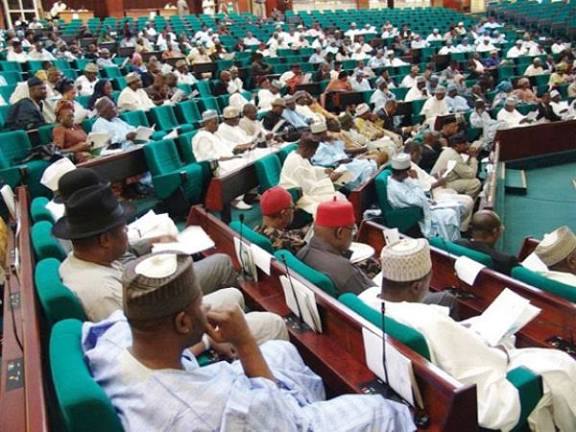
The House of Representatives on Thursday directed the Inspector General of Police (IGP), Kayode Egbetokun, and the Commandant-General of the Nigeria Security and Civil Defence Corps (NSCDC), Dr. Ahmed Audi, to immediately enforce strict compliance with extant rules mandating all officers on checkpoints, patrols, and stop-and-search operations to appear in full approved uniforms with visible name tags, ranks, and identification numbers.
The resolution followed the adoption of a motion of urgent national importance sponsored by Ibe Osonwa, who raised concerns over the growing number of ununiformed security operatives at checkpoints in the South-East and South-South regions, describing it as a national security risk that undermines public trust and officer accountability.
Leading debate on the motion, Osonwa reminded the House that the Nigeria Police Act 2020 and relevant operational guidelines emphasise the need for officers’ proper identification and uniform adherence to ensure transparency, accountability, and protection of citizens’ rights.
He expressed concern that the worsening security situation in both regions, particularly the activities of “unknown gunmen” and other criminal groups had been compounded by the proliferation of security personnel operating in plain clothes or incomplete uniforms.
“Many officers of the Nigeria Police Force, highway patrol teams, and even NSCDC personnel now man checkpoints and conduct stop-and-search operations in jeans or casual wear without name tags or rank insignia,” he lamented. “This violates established force orders and security protocols.”
The lawmaker warned that the absence of clear identification at such checkpoints creates confusion and danger for citizens, making it nearly impossible to distinguish genuine officers from criminal impersonators.
He added that the trend had also emboldened extortion, harassment, and abuse of power by rogue officers, noting that such misconduct was becoming widespread and difficult to track.
Osonwa further cautioned that the situation could worsen as the festive season approaches, with increased inter-state movement exposing more citizens to harassment and potential security threats from impostors.
“The inability to properly identify officers damages the reputation of security agencies and erodes the fragile trust between law enforcement and the citizens they are meant to protect,” he said.
Adopting the motion, the House mandated its Committees on Police Affairs and Interior to summon the IGP, the NSCDC Commandant-General, and other relevant agencies to explain reasons for the continued non-compliance.
The committees are also to secure a definite timeline for the full implementation of the Uniform Enforcement Directive and undertake oversight visits to affected regions to monitor compliance, with a report expected within six weeks.
-

 News20 hours ago
News20 hours agoNo Power Can Stop Muslims From Practising Shariah – Shariah Council
-

 Sports12 hours ago
Sports12 hours agoUCL Round of 16: Osimhen to face Liverpool as Real Madrid, Man City renew rivalry
-

 Business17 hours ago
Business17 hours agoFG deepens CREDICORP, targets wider coverage, disbursements
-

 News17 hours ago
News17 hours agoOver 100 terrorists storm Benue villages, kill 150 – Witness tells court
-

 Business17 hours ago
Business17 hours agoBag Of Cement Climbs To N11,000
-

 News18 hours ago
News18 hours agoEFCC detains Ozekhome over ‘Tali Shani’ UK property affair
-

 News18 hours ago
News18 hours agoNorthern Christian leaders drop ‘CAN’ title, adopt old identity
-

 Sports20 hours ago
Sports20 hours agoChelle justifies $130k salary demand, denies exit threat



